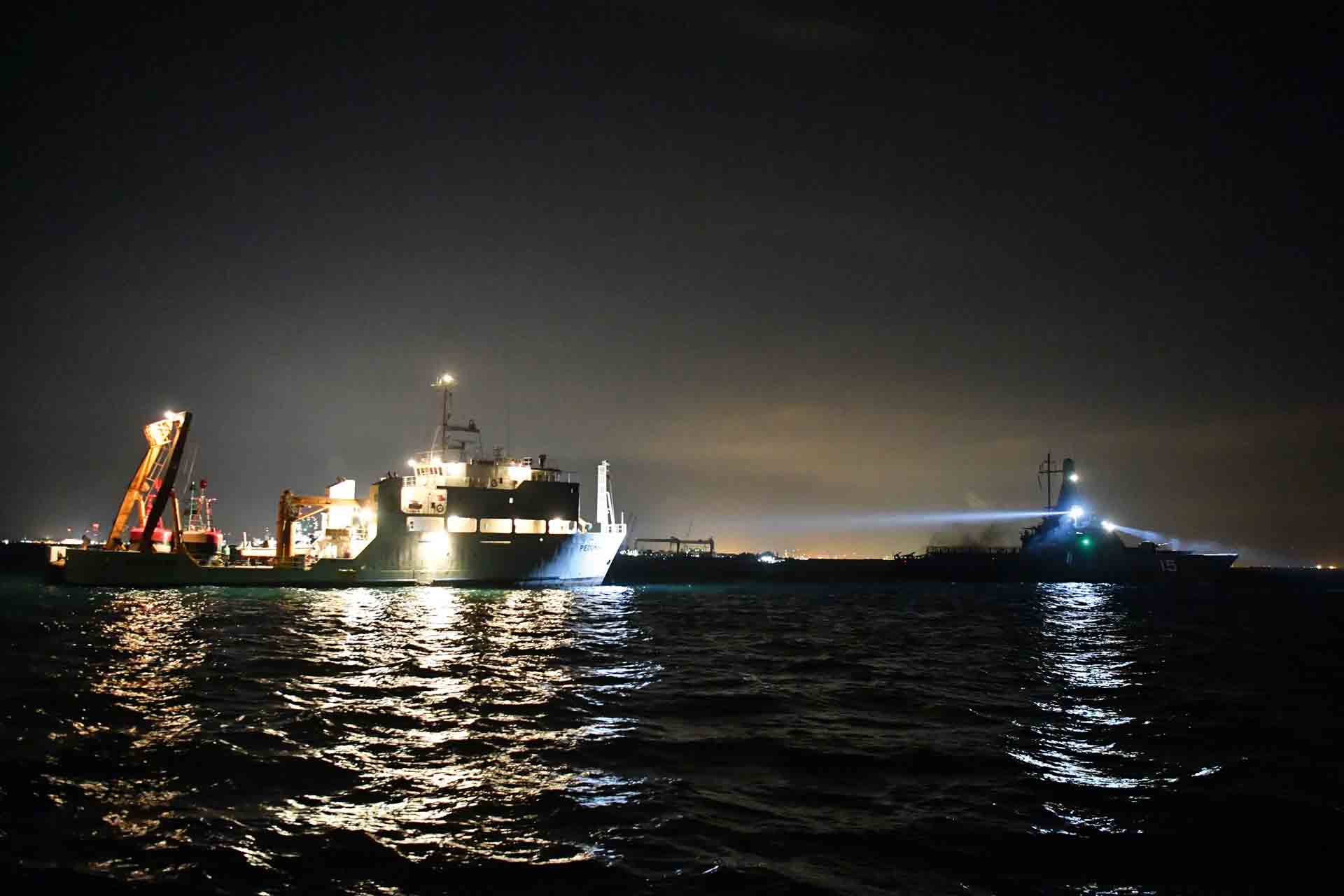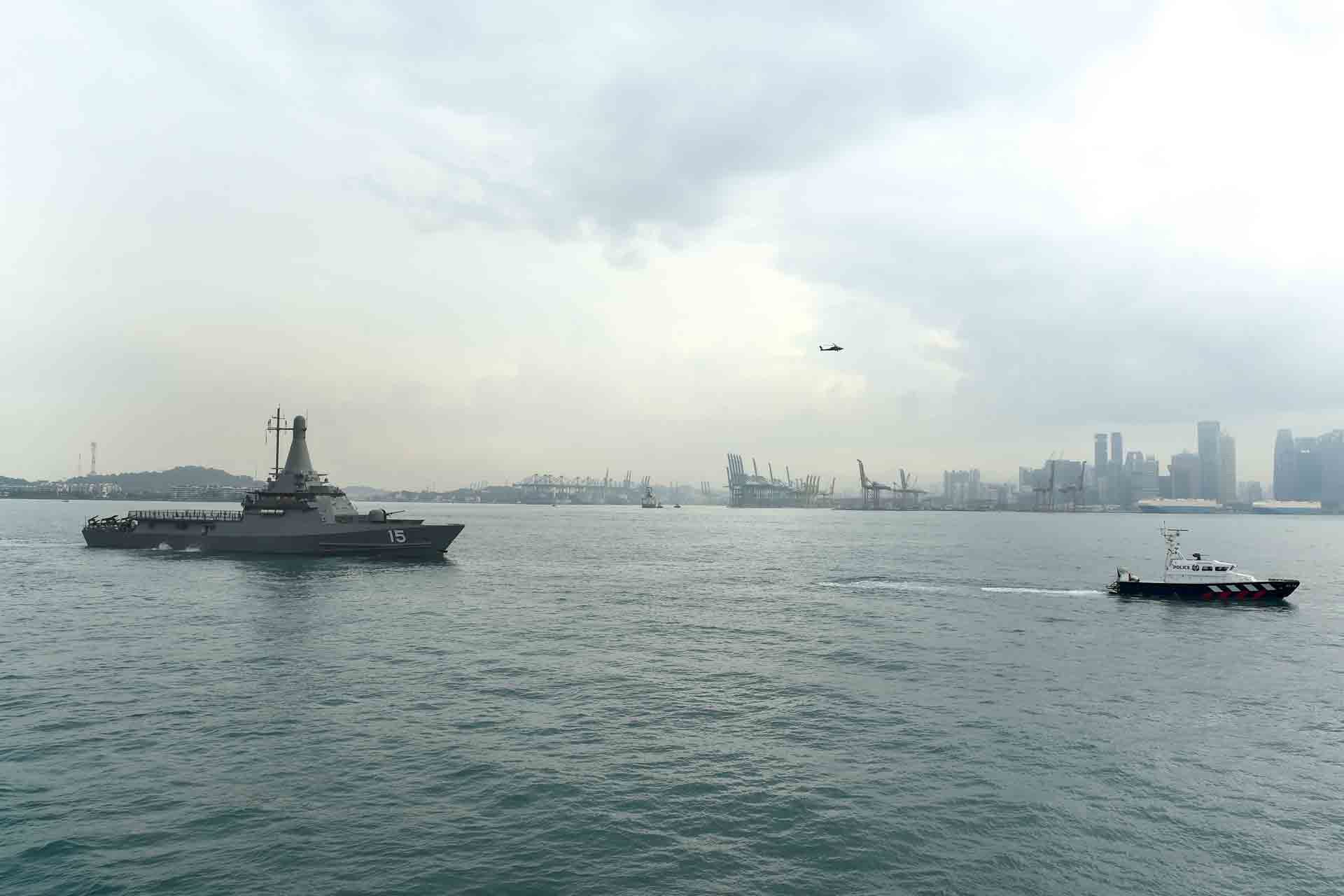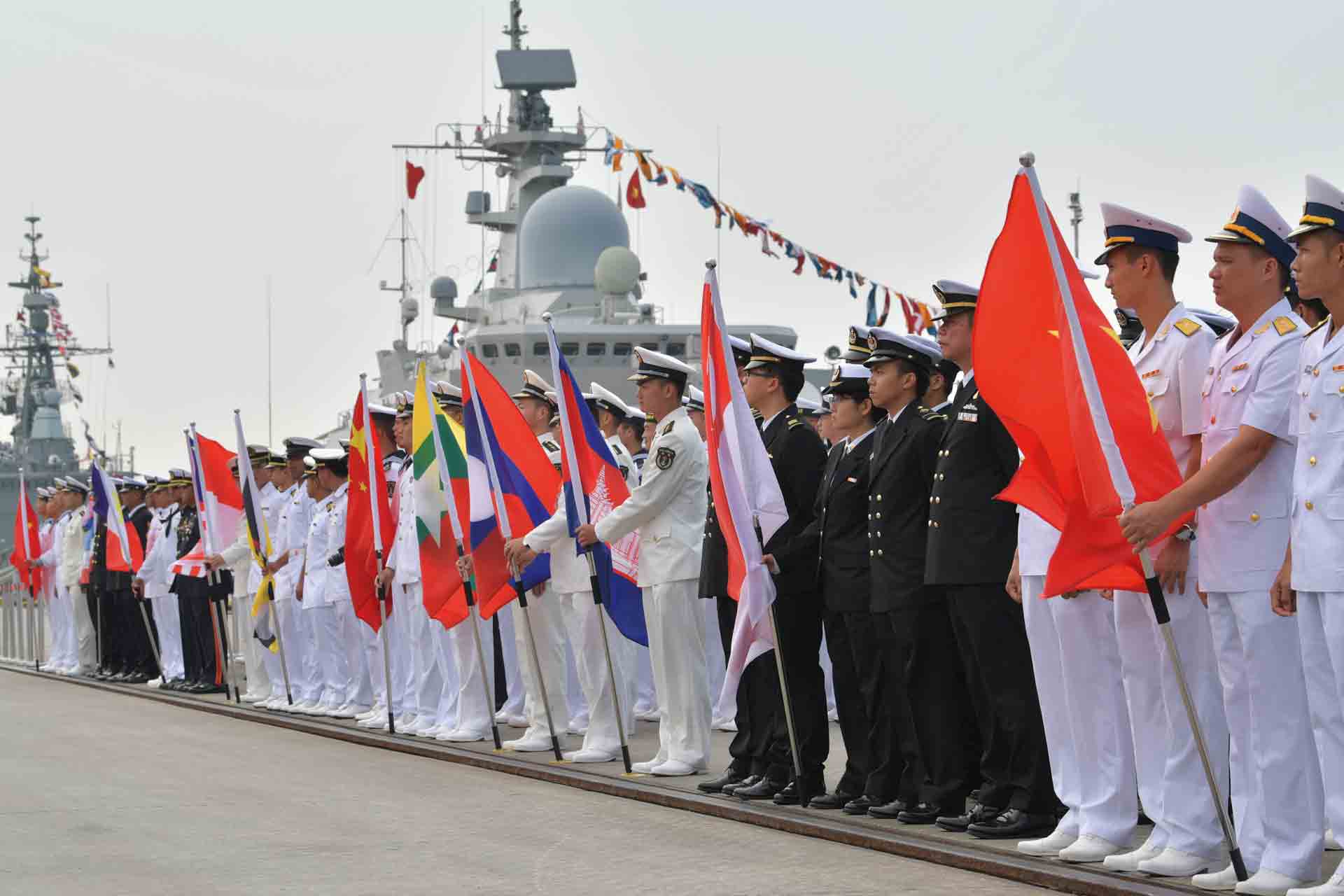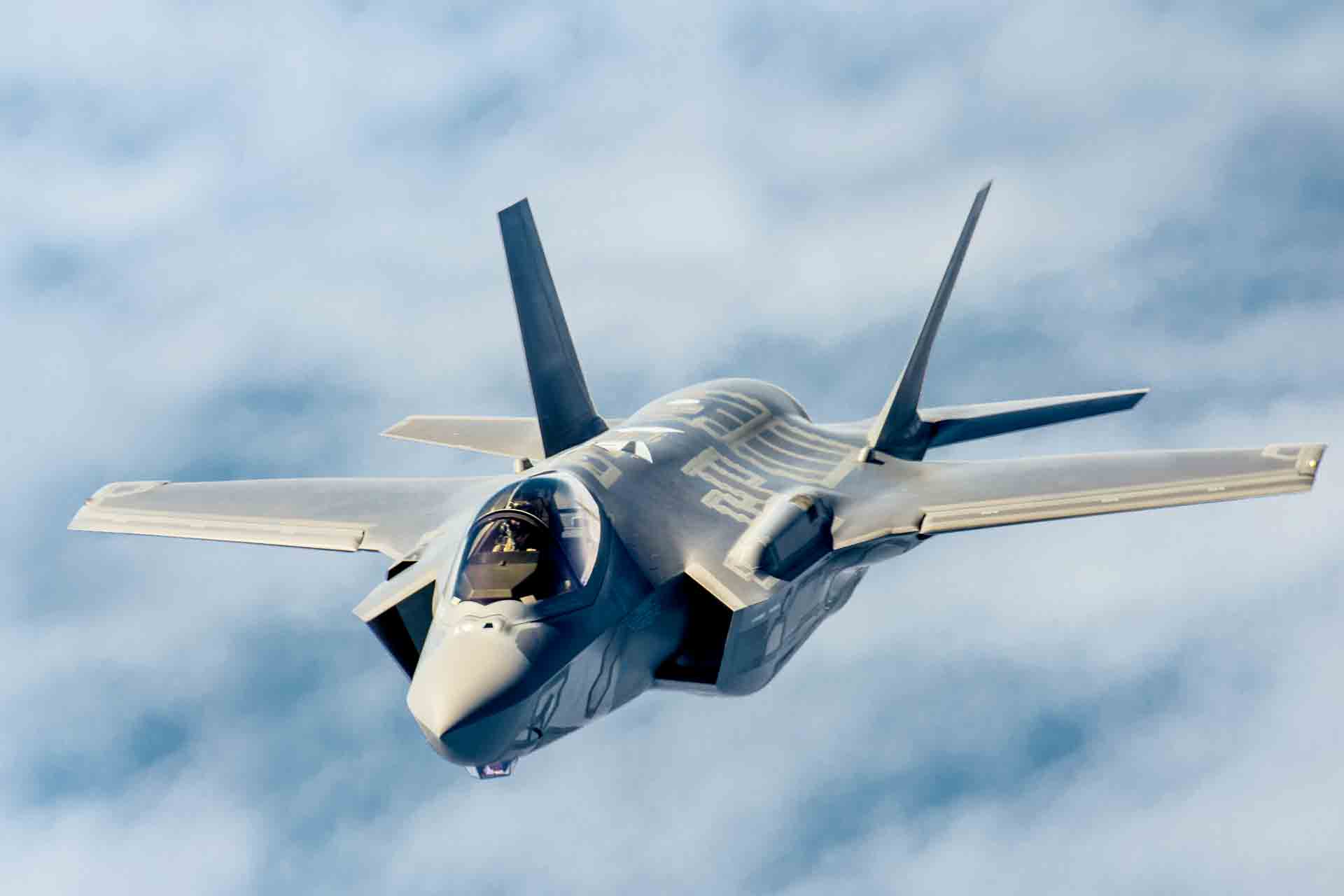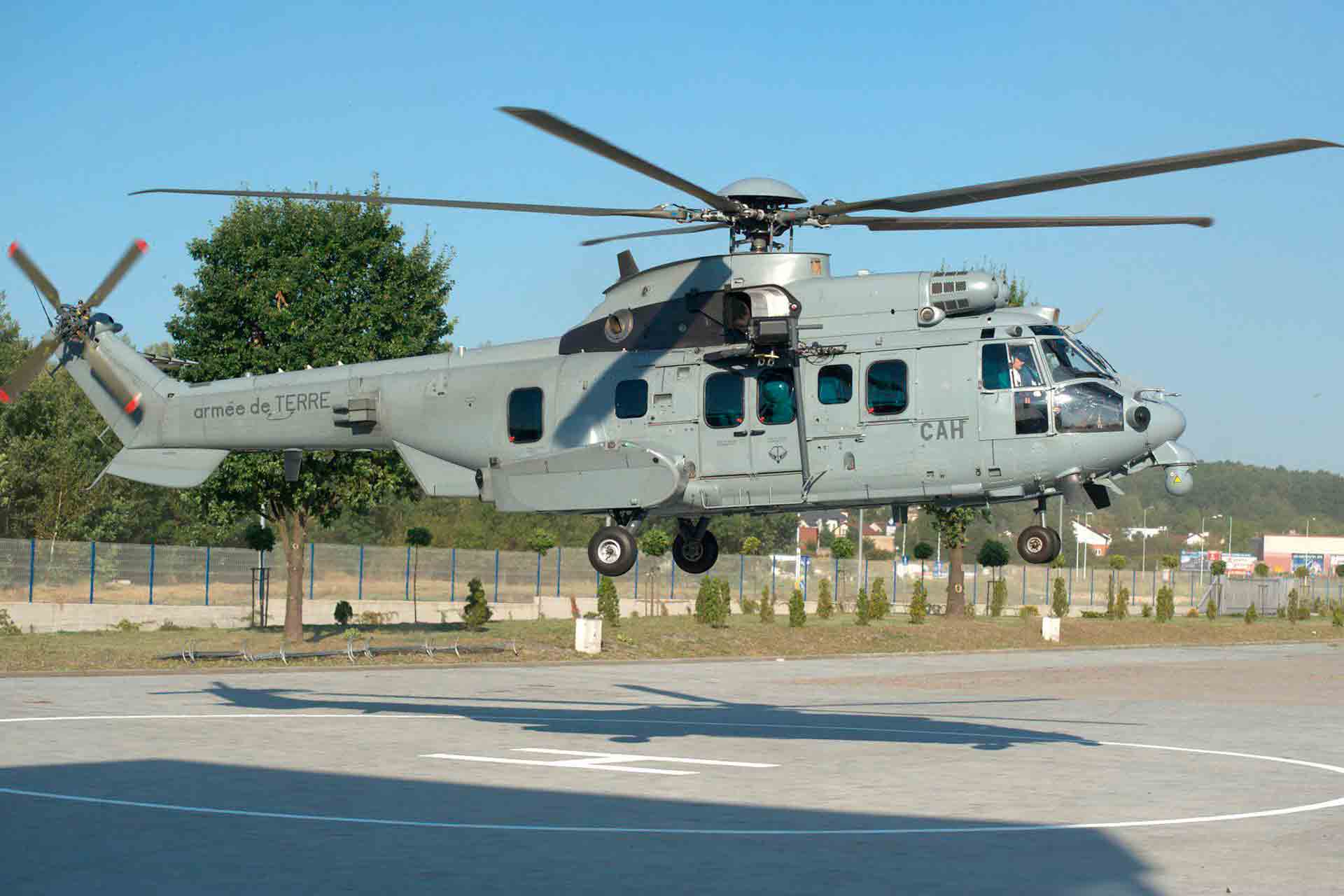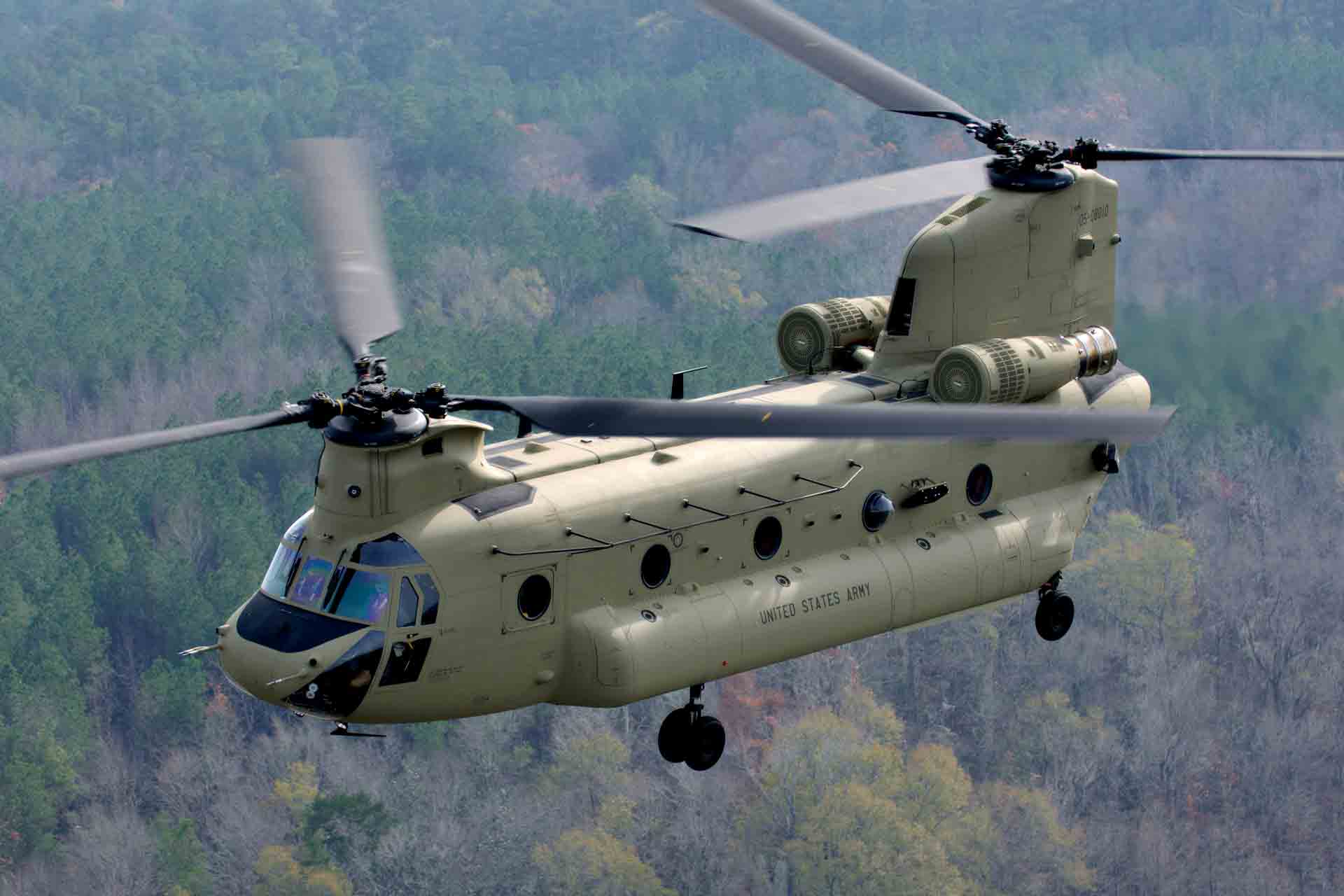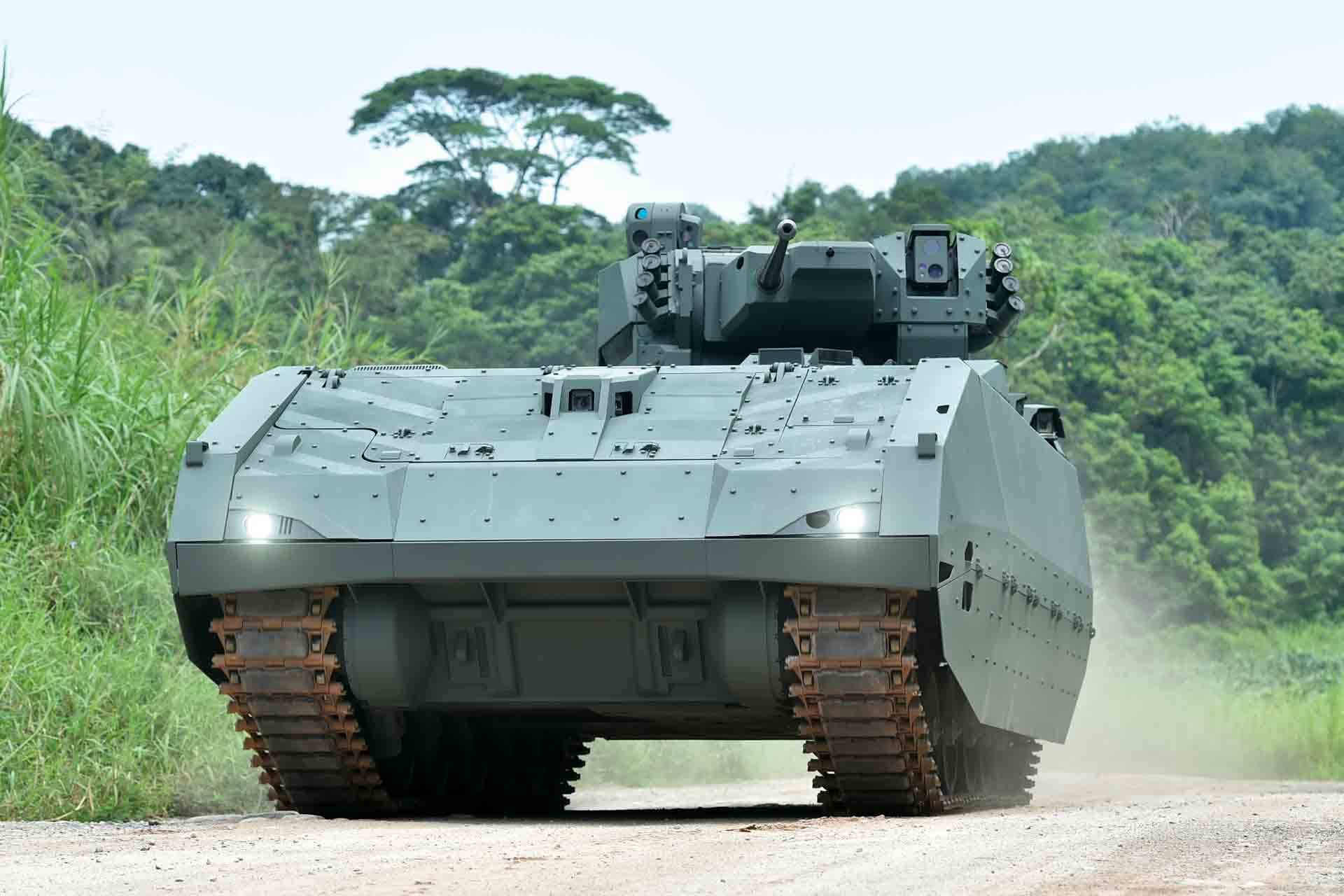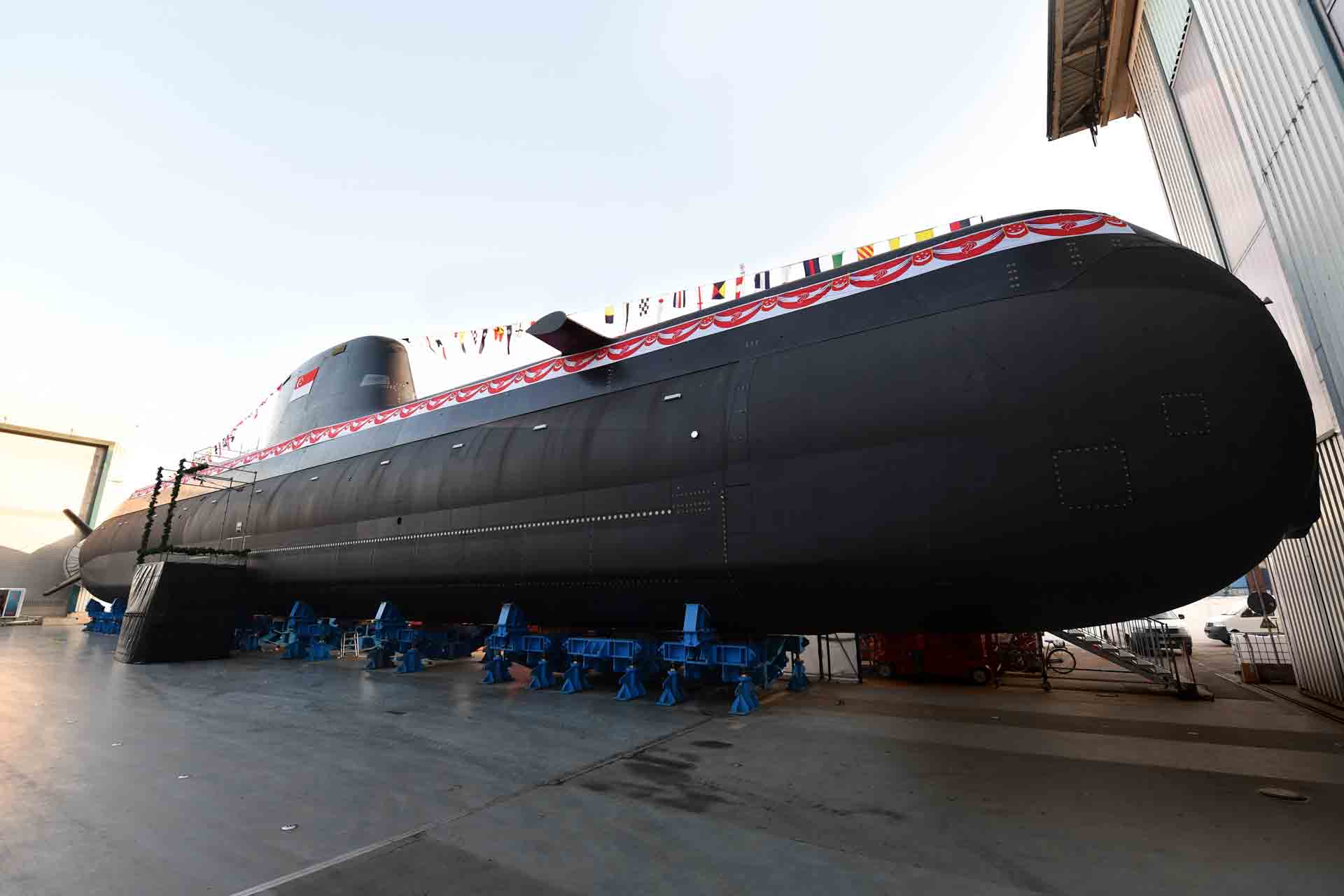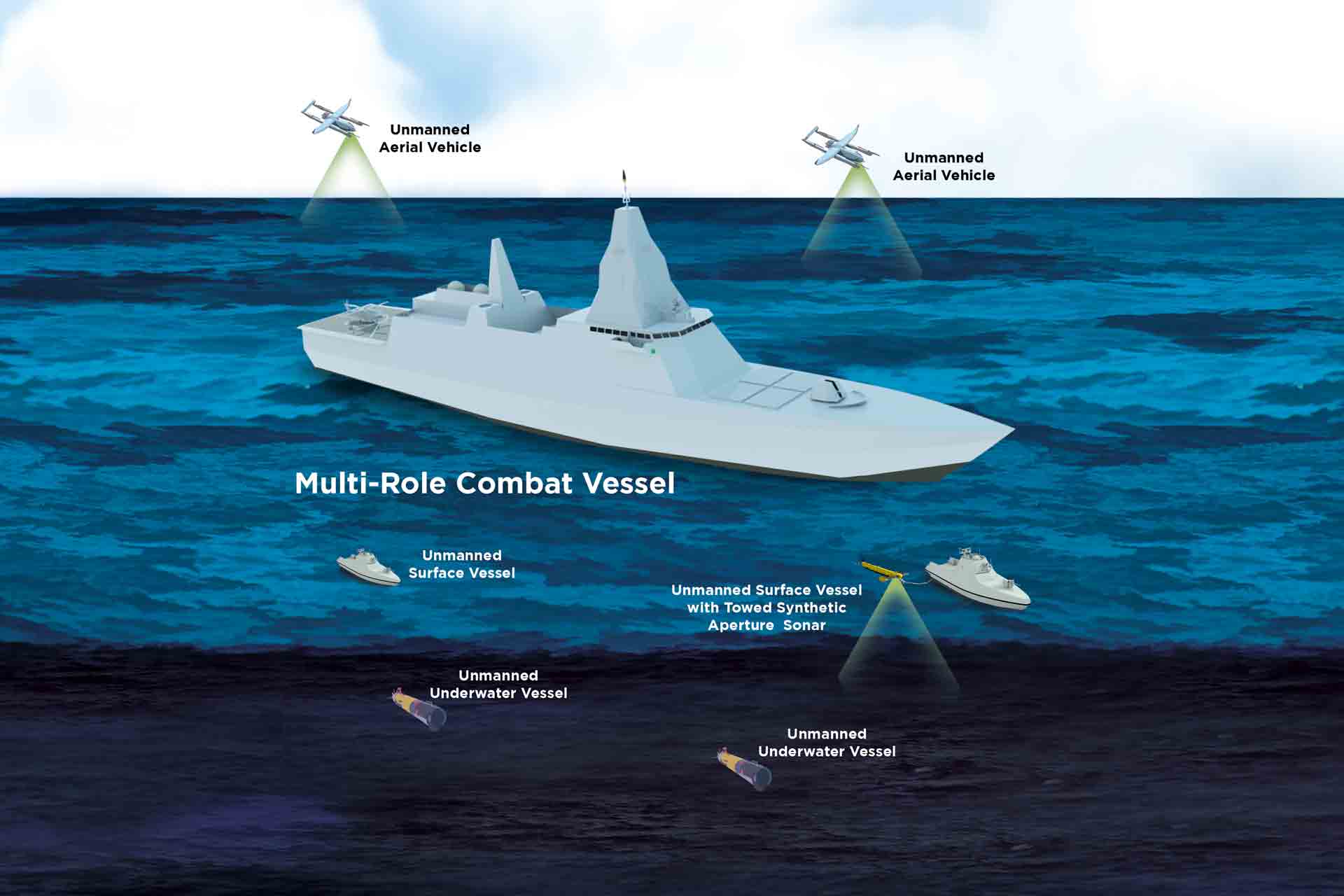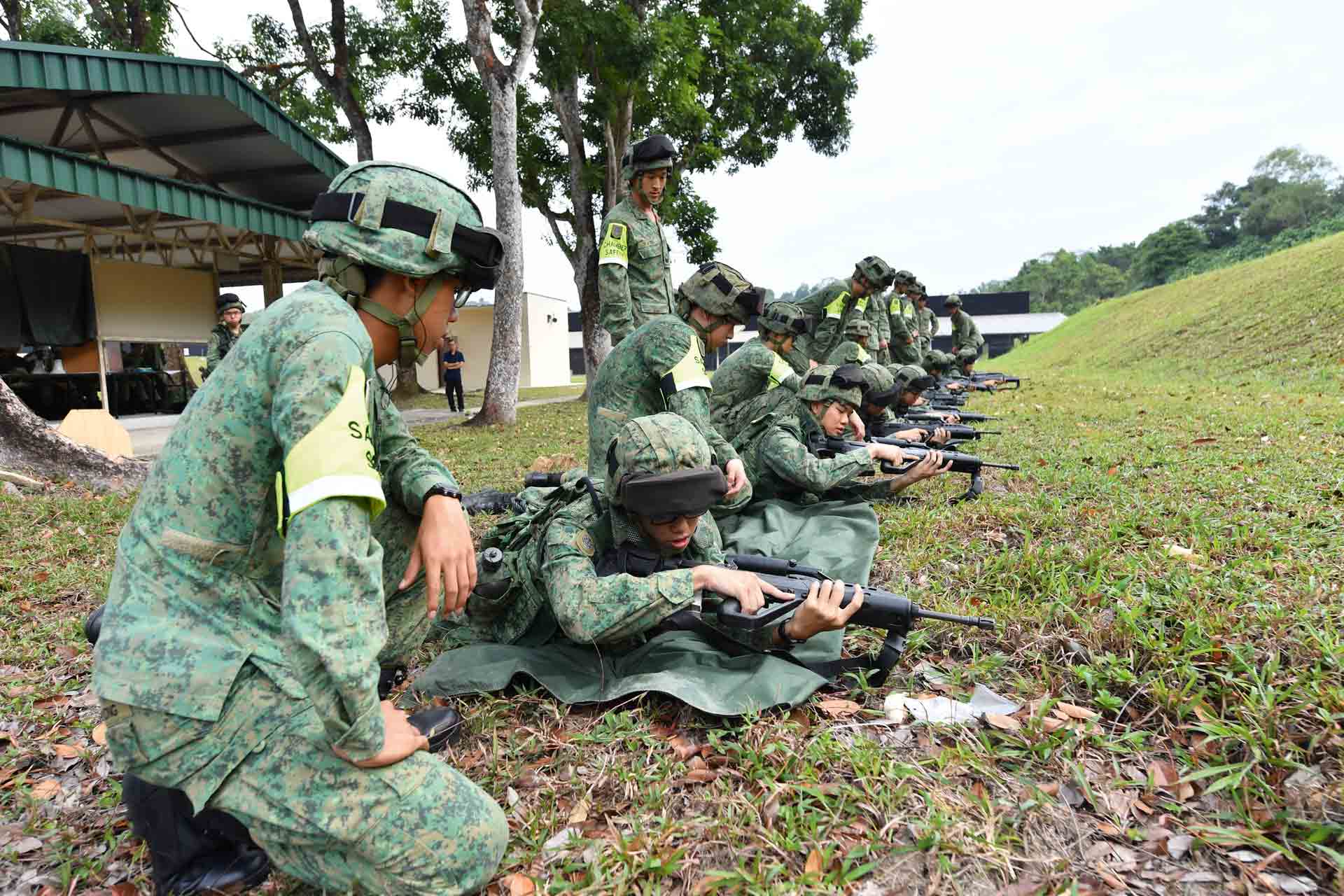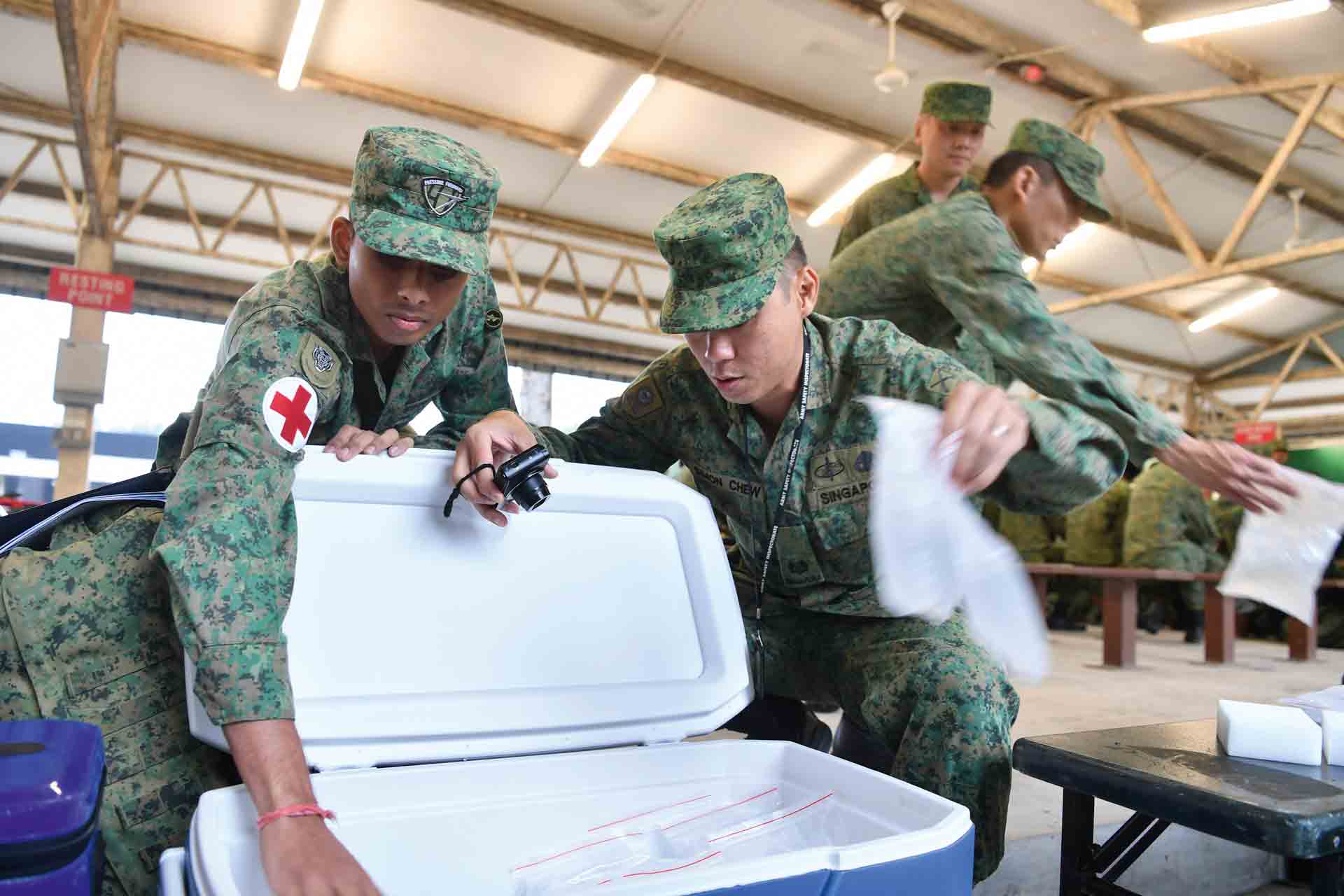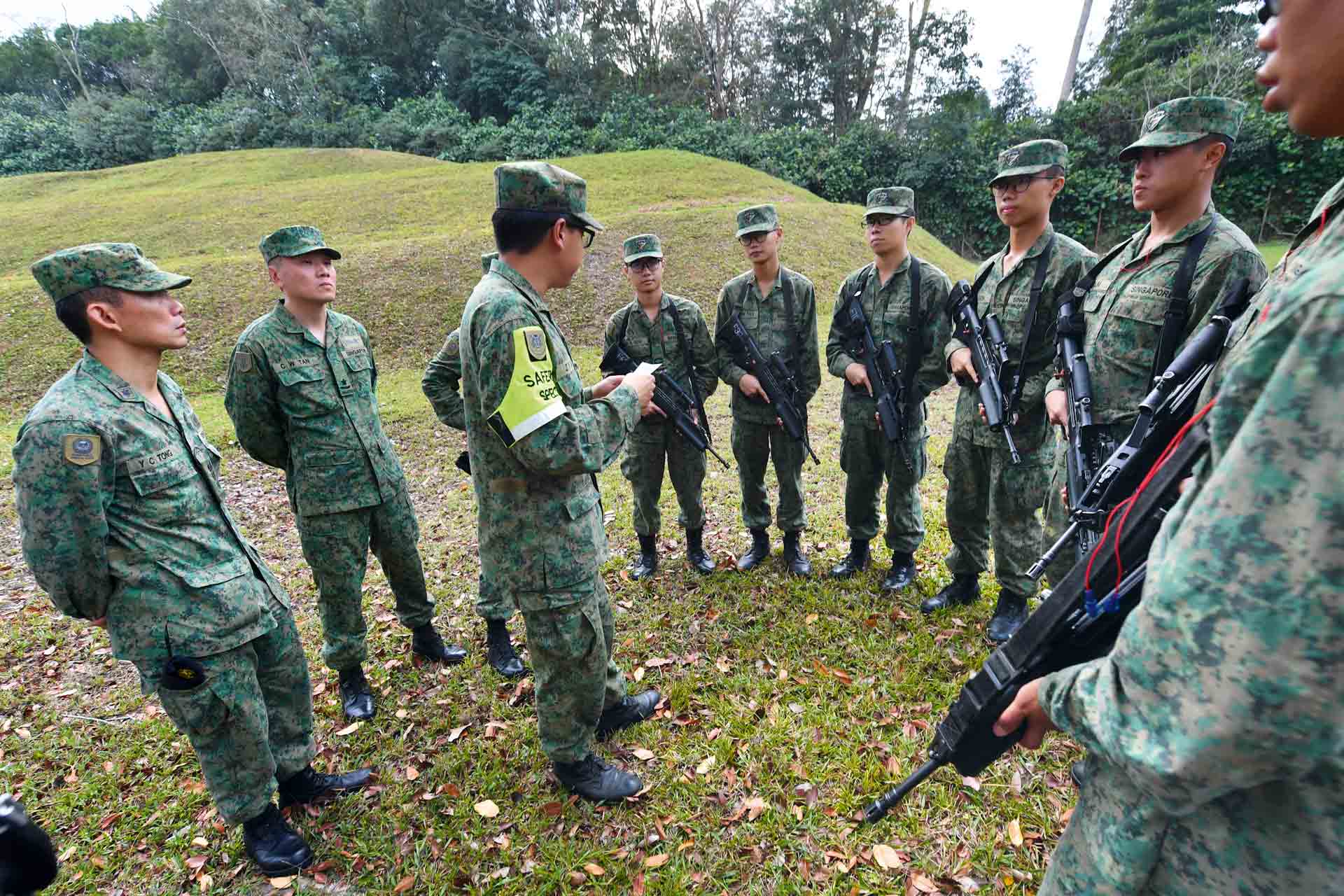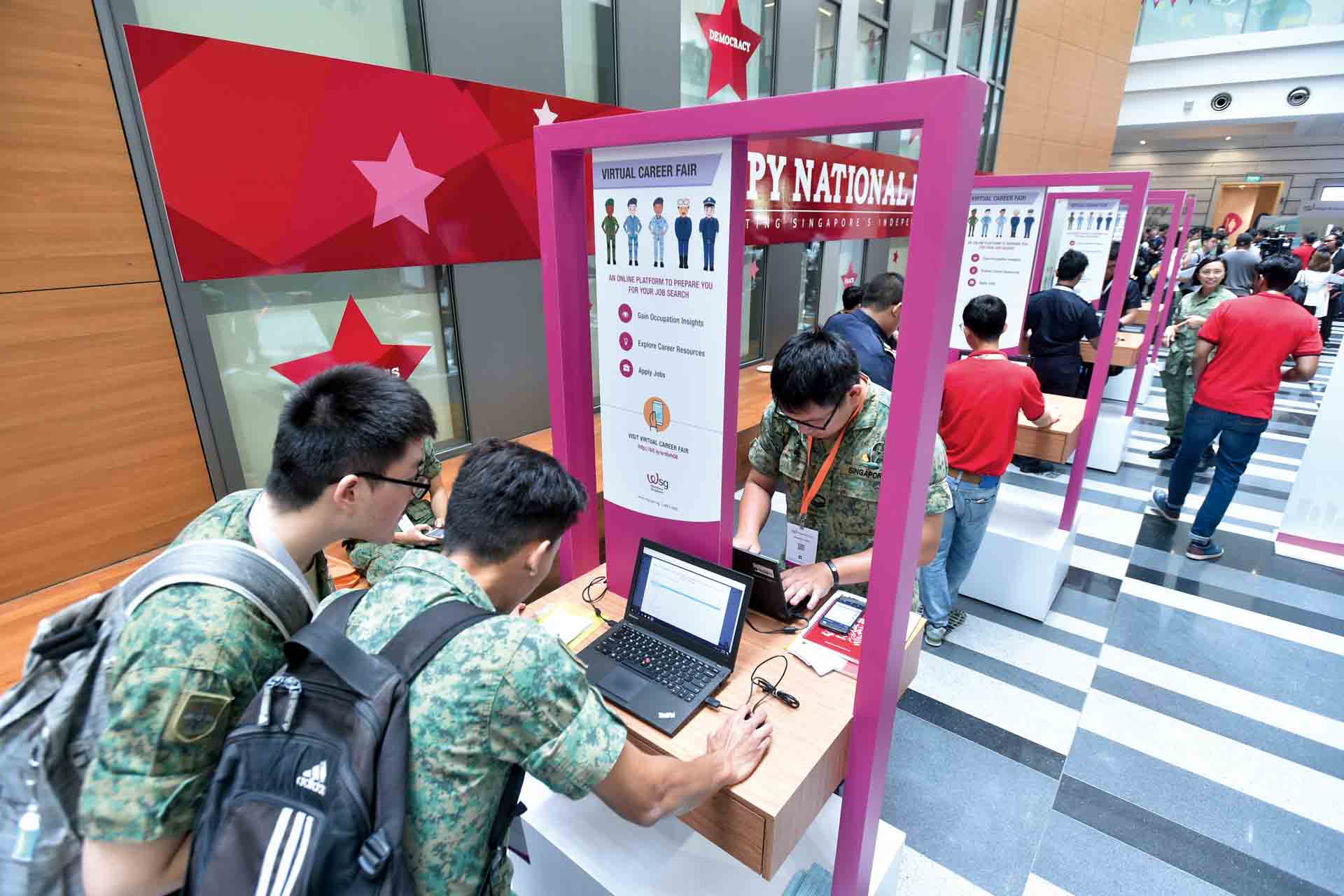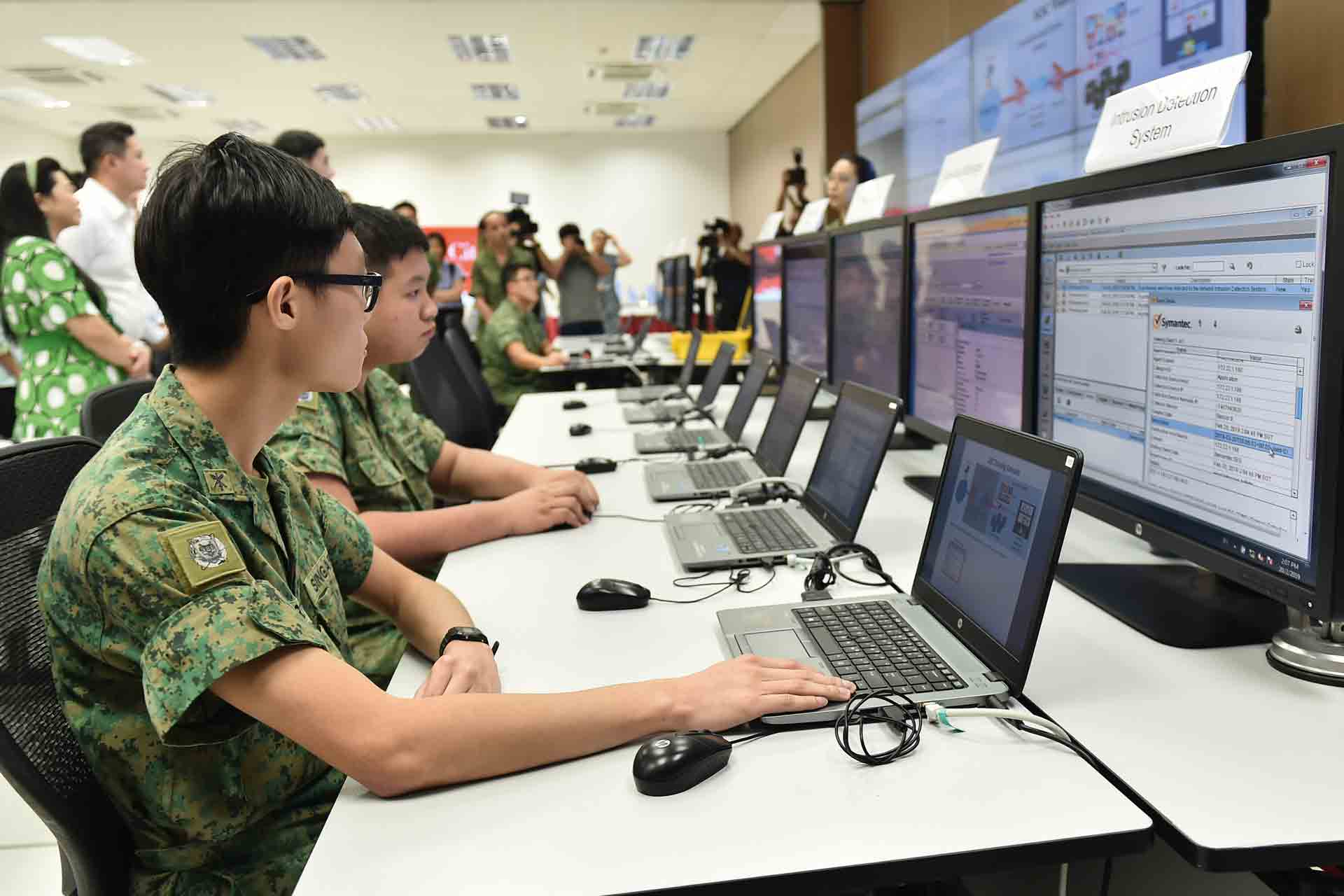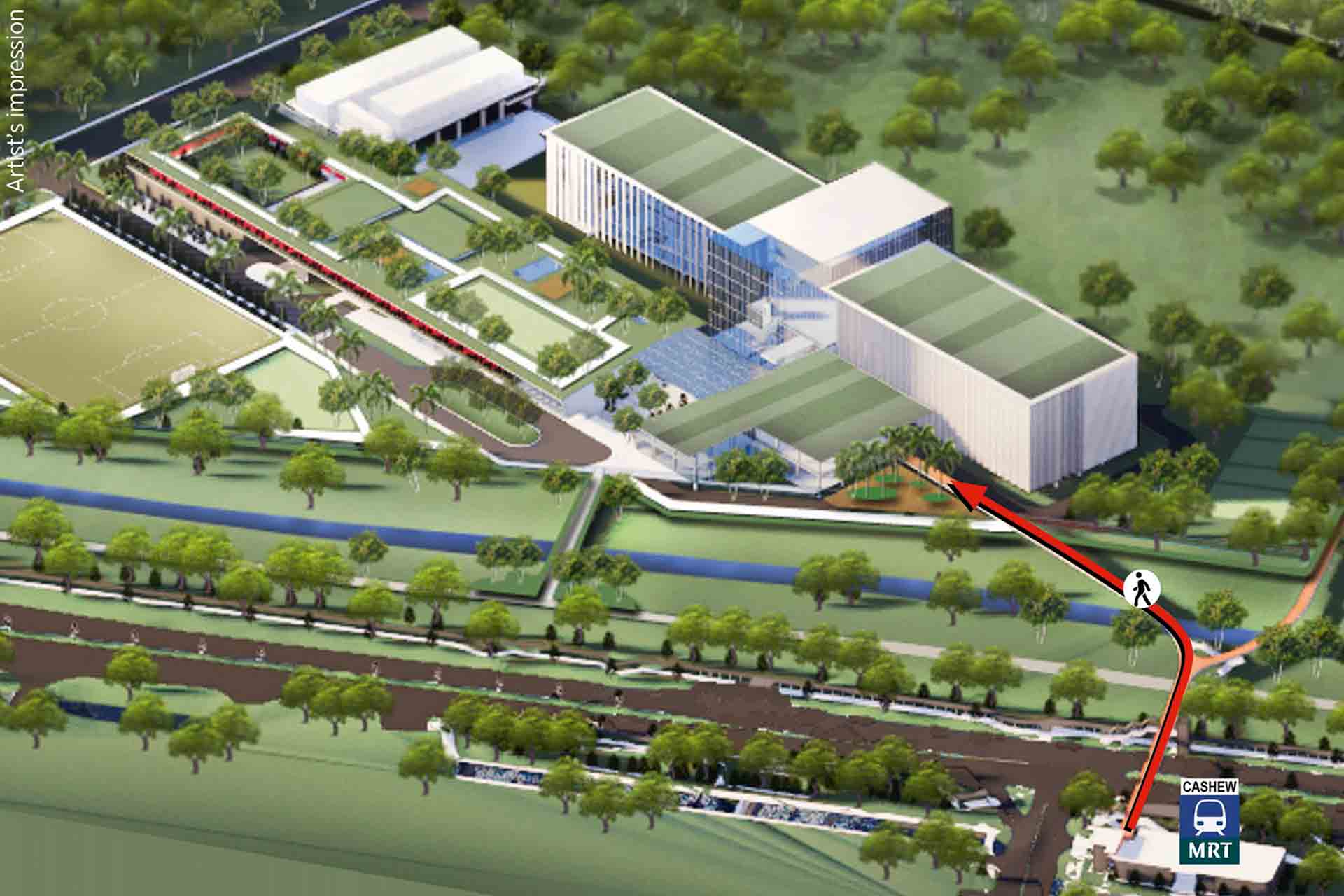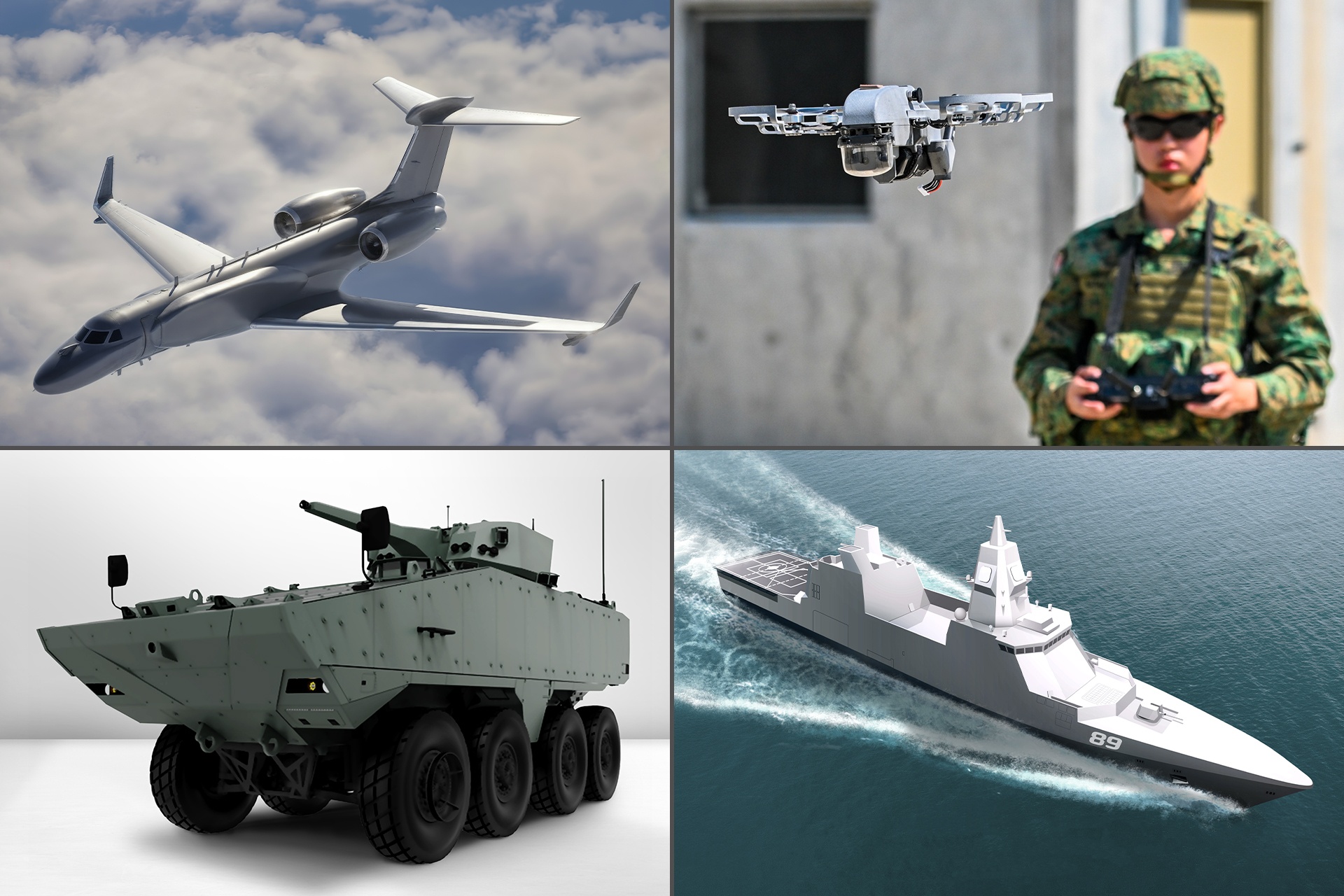OPS & TRAINING
A STRONG SAF FOR THE NEXT GENERATION
01 Apr 2019
The Ministry of Defence (MINDEF) and Singapore Armed Forces (SAF) is arming itself with new assets and technologies to take Singapore into the next phase of defence
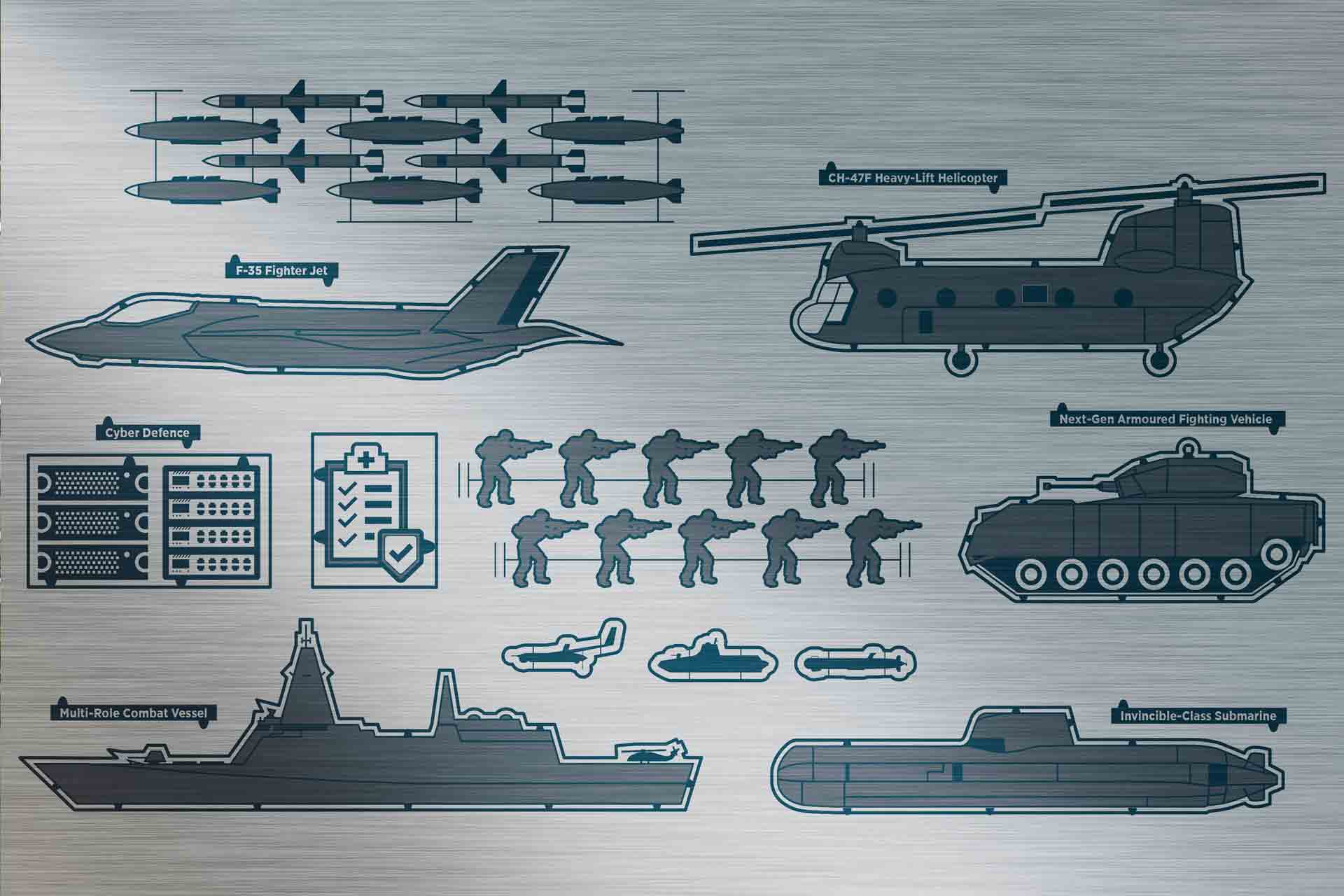
How can we ensure that Singapore's defence remains strong for the next generation?
It will take significant and steady investments to build a capable and resilient SAF that can better respond to future security threats and keep Singaporeans safe.
Minister for Defence Dr Ng Eng Hen made this point during the Committee of Supply Debate on the defence budget in Parliament on 1 Mar.
"A strong SAF protects Singapore and Singaporeans…and we have to prepare for the future," said Dr Ng.
With several projects and asset acquisitions reaching maturity, defence spending this year has increased slightly at about 4.8 per cent.
However, Dr Ng reassured that spending will be kept in pace with inflation over the next decade, at about three to four per cent each year. He added that the overall defence expenditure will even out in subsequent years.
Building confidence and trust
In the past year, the SAF was deployed to provide security for several high-profile meetings such as the United States (US) and the Democratic People's Republic of Korea Summit in June and the ASEAN summit in November.
MINDEF also chaired the 12th ASEAN Defence Ministers' Meeting (ADMM) and 5th ADMM-Plus last October, which saw member states and regional powers pledging their support for the world's first multilateral guidelines for air military encounters.
The inaugural ASEAN-China Maritime Exercise, held last October in Zhanjiang, China, also marked an important milestone in Singapore's efforts to advance regional stability.
Protecting Singapore's waters
Nearer to home, tensions ran high as Malaysian vessels repeatedly intruded into Singapore's territorial waters starting from last November.
As the Republic of Singapore Navy (RSN), Maritime and Port Authority of Singapore and Police Coast Guard worked together to guard the waters, Singapore's stand on these intrusions is clear.
"We must ensure that the SAF is strong and adequate to defend our rights when diplomacy fails and when others choose to do us harm or ignore our rights," said Dr Ng.
To deter attacks, Dr Ng said that the SAF will beef up security along Singapore's entire coastline. These include adding optical sensors, coastal radars and watch towers to boost sea traffic coverage. Starting next year, unmanned surface vessels will also be used for patrolling Singapore's waters.
STRENGTHENING REGIONAL SECURITY
Upgrading the SAF's capabilities
Plans to acquire F-35 fighter jets as a replacement for the Republic of Singapore Air Force's (RSAF's) F-16s are well under way, said Dr Ng.
He announced that MINDEF will request an initial acquisition of four F-35s, with the option to secure eight more should Singapore decide to proceed.
With the unit price for the planes steadily falling, Dr Ng said that this is a good time to purchase the asset. The total cost of ownership, including maintenance across its lifespan, will be similar to that of the RSAF's fleet of F-15SG fighter aircraft. He added that MINDEF would continue to work with the US Department of Defence to optimise the F-35s' operating and maintenance costs.
The RSAF will also see its Super Puma and CH-47D Chinook fleets being replaced by the H225M medium-lift and CH-47F heavy-lift helicopters from 2020 onwards. These new assets will add capacity and be more effective in Search and Rescue or Humanitarian Assistance and Disaster Relief operations.
Greater mobility, extended reach
On the seafront, four Invincible-class submarines will replace the RSN's current submarines. The first, Invincible, was recently launched in Germany on 18 Feb. The full fleet of new submarines will be ready by 2025.
The RSN's ageing missile corvettes will also be replaced by new Multi-Role Combat Vessels (MRCVs). Technologies such as unmanned air and sea drones will allow the MRCVs to extend their reach and flexibility against threats.
A leaner crew aided by automation technologies will man the MRCVs. These innovations will translate into operational cost savings of up to 10 per cent, compared to similar-sized frigates. The first of these will be delivered around 2025, and full delivery is expected by 2030.
In addition, the Landing Ships Tank, which were introduced in 2000, will be replaced in the next decade by the larger and more flexible Joint Multi-Mission Ships.
On land, the next-generation Armoured Fighting Vehicle (AFV) will replace the Army's current M113 Ultras from this year onwards. With better armour protection and greater mobility to manoeuvre through urban environments, the AFV will make its debut at this year's National Day Parade.
There are also plans to introduce the next-generation Howitzers, which boast extended range and the ability to conduct precision strikes.
A hybrid force
With the supply of manpower projected to see a one-third reduction by 2030, the SAF is acquiring assets that require less manpower to operate, as well as harness a greater use of unmanned technologies.
For instance, the next-generation Howitzer will be operated by a three-man crew, compared to the current nine-man team. The RSAF's Unmanned Aerial Vehicles (UAVs) will be replaced by newer ones with better capabilities over the next few years. The RSN's MRCVs will also carry unmanned surface vessels, while soldiers in the Army will use micro-UAVs that are useful in dense built-up urban environments.
"These unmanned platforms will complement traditional manned equipment, to enhance responses across the full range of operational scenarios…This is the SAF that will take us into and guard our future," said Dr Ng.
He added that the modern systems and platforms of the SAF can be operated by Operationally Ready National Servicemen (NSmen) who are not PES A or B, which effectively increases the utilisation of the manpower pool.
NEXT-GENERATION SAF
New training facilities
Over the next decade, the bulk of the SAF's training will shift to western Singapore with the construction of SAFTI City.
With more than 200 buildings of varying heights and types, the facility will make use of simulation and detailed monitoring technologies to enhance soldiers' learning. Enhancements to the area's road networks and bridges also mean that motorised and mechanised troops in Army vehicles can train better there, starting this year.
The SAF is also enhancing its training overseas, particularly in the northeast region of Australia. Under the Singapore-Australia Comprehensive Strategic Partnership, new facilities such as the Instrumented Combined Arms Air-Land Ranges and Urban Operations Live-Firing Facilities are being built in the Shoalwater Bay and Townsville Region training areas.
The former, for instance, allows for coordinated strikes between air and land platforms — training that the SAF is unable to do locally because of land constraints.
Once completed, the SAF will be able to train large bodies of troops for up to 18 weeks annually, compared to the current six to seven weeks.
FUTURE TRAINING FACILITIES
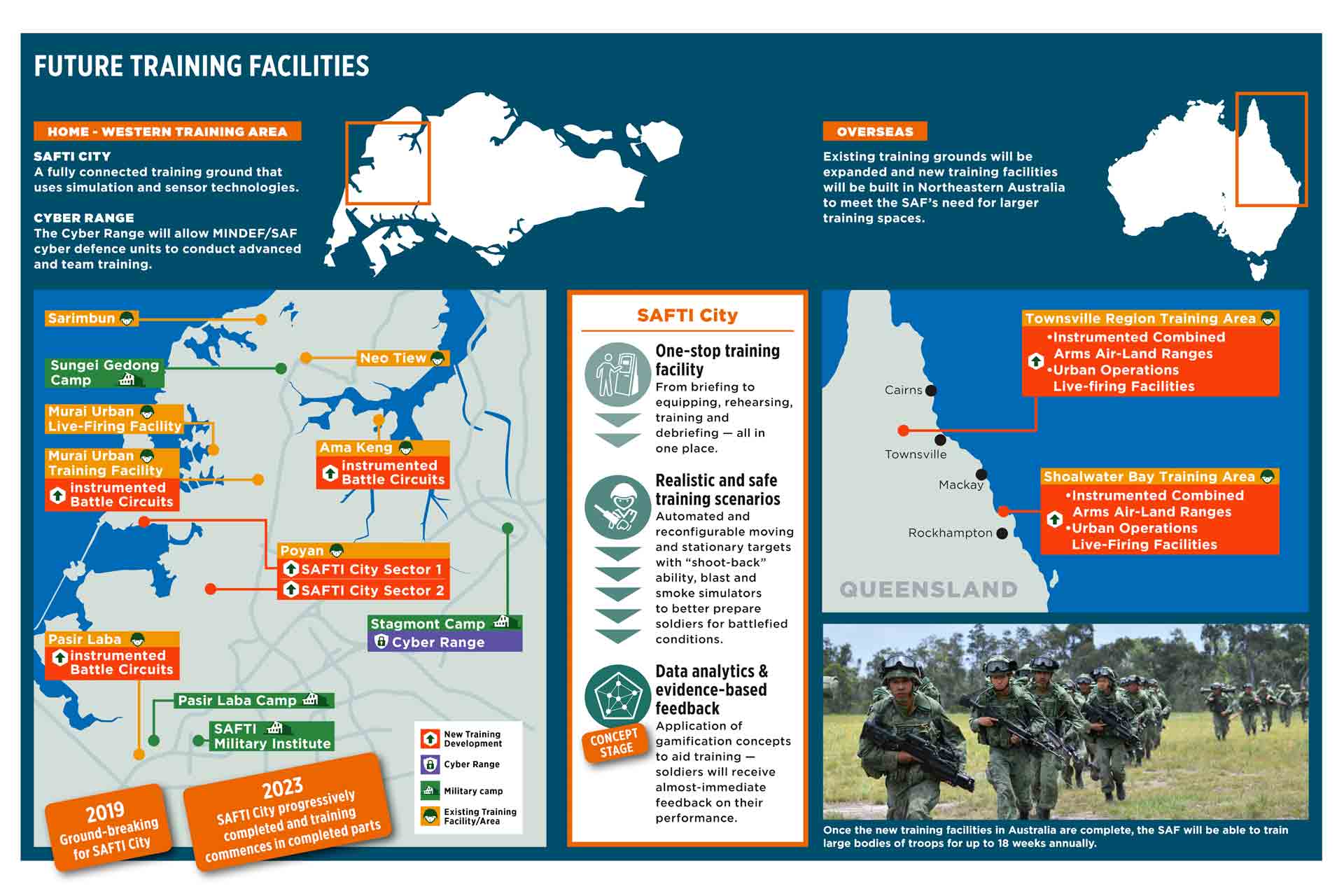
HOME - Western Training Area
SAFTI City
A fully connected training ground that uses simulation and sensor technologies.
Cyber Range
The Cyber Range will allow MINDEF/SAF cyber defence units to conduct advanced and team training.
Overseas
Existing training grounds will be expanded and new training facilities will be built in Northeastern Australia to meet the SAF's need for larger training spaces.
SAFTI City
One-stop training facility
From briefing to equipping, rehearsing, training and debriefing — all in
one place.
Realistic and safe training scenarios
Automated and reconfigurable moving and stationary targets with "shoot-back" ability, blast and smoke simulators to better prepare soldiers for battlefied conditions.
Data analytics & evidence-based feedback
Application of gamification concepts to aid training — soldiers will receive almost-immediate feedback on their performance.
Safer training
To enhance training safety, mandatory inspections of all field training must be conducted by the Army.
"Commanders have comprehensively reviewed safety management plans and the overall training tempo… The Army will also ensure 100 per cent inspection of all high risk and field training," said Senior Minister of State for Defence Heng Chee How.
This means that all high-risk and field training will undergo safety inspections at the unit level, formation level or by the independent Army Safety Inspectorate (ASI). The ASI assesses the safety and operational readiness of Army units.
Previously, inspections were only mandated for high-risk activities. This did not include field training such as section-level tactical drills.
"Safety inspections are one of the mechanisms to ensure that the ground units are complying with safety regulations…(and also a) chance to check the competencies of the personnel involved," said ASI Head, Colonel (COL) Tong Yi Chuen.
Strengthening safety culture
Commanding Officer of 41th Battalion, Singapore Armoured Regiment (41 SAR) Lieutenant Colonel (LTC) Low Youwen welcomed this move.
"The presence of third party inspection keeps us sharp, alert and prevents us from becoming complacent. (The ASI also brings) a fresh perspective and (this allows us to) see things in a different light," said LTC Low.
He added that the unit aims to educate and elevate soldiers' awareness of danger, for their safety as well as their buddies'. Open reporting is also encouraged so that commanders can learn from the issues raised.
While the ASI focuses on the Army's safety management system, it is the Inspector-General Office's job to ensure an enduring safety culture in the SAF, said newly appointed Inspector-General Brigadier-General (BG) Tan Chee Wee.
"To a large extent, what we are trying to do is connect the policy level and the system level to the behaviour on the ground…(to see if) there is a gap between policy, doctrine and implementation and (how) to reduce it," said BG Tan.
Enhancing NS experience
MINDEF has also come up with a slew of initiatives to ease the administrative burdens of national servicemen.
For instance, NSmen no longer need to apply for an Exit Permit when they travel overseas for less than six months. Those who are away for six months or longer still need to apply.
Additionally, NSmen with relevant expertise in fields such as nursing and info-communications can now be deployed to these roles earlier, instead of having to complete their full 10-year training cycle before converting.
A new SkillsFuture@NS initiative will also be launched to offer more courses to Full-time National Servicemen (NSFs) and help them transit to higher education or into the workforce.
Under the scheme, NSFs will be able to use their $350 worth of credits for about 3,000 courses (including courses on data analytics and cybersecurity), up from just 200 online courses. Upon completion, these courses can be used to obtain credit exemptions from relevant diploma or degree programmes.
Also in the works are two new projects — NS Memories and NS Hub. The former is a digital repository for servicemen to access official photographs of themselves and their buddies online.
The latter is a one-stop facility to be located opposite Cashew MRT station, which consolidates different NS services which are currently scattered across the island.
Construction begins this year and the hub will be ready by 2023.
ENHANCED SAFETY INSPECTIONS
Defending the digital realm
On the cyber front, Senior Minister of State for Defence Dr Mohamad Maliki bin Osman emphasised the importance of the digital realm as the new battlefront of today.
"In the age of the Internet and social media, the resilience of Singaporeans will be tested through attacks from the digital front," said Dr Maliki during the budget speeches.
Digital Defence was added as the sixth pillar of the Total Defence framework on this year's Total Defence Day on 15 Feb.
To boost MINDEF and SAF's digital defences, plans to hire more than 300 cyber defenders under two new schemes were announced earlier on 20 Feb.
The schemes consist of the non-uniformed Defence Cyber Expert job specialisation and the uniformed Command, Control, Communications and Computers Expert vocation.
In addition, the existing NS Expertise Conversion Scheme will allow selected non-officer NSmen with IT expertise to become Military Domain Experts Scheme officers for cyber vocations within the military.
There are also efforts to equip individuals — MINDEF is working with the National Library Board to hold information literacy workshops for recruits during Basic Military Training, which are aimed at training them to deal with online falsehoods.
For students, the "Guardians of the City" strategic card game has been updated to include cards on combating digital threats, such as protecting personal data and using strong passwords.
Collective will
In conclusion, Dr Ng said: "Defence, especially for a small island like Singapore, is crucial if we are to safeguard our interests and deter aggression."
While Singapore is on track to build a modernised tri-Service SAF that can meet the security challenges in both real and virtual worlds, this can only be done through persistent investments, and a strong and collective will.
"If we continue our steady investments into defence and our NSmen maintain their commitment and resolve to defend Singapore, then our future will be secure for another generation."
BOOSTING NS EXPERIENCE & CYBER DEFENCE
NEXT-GEN SAF PROGRESS UPDATE
The Singapore Armed Forces (SAF) ensures it remains a strong and capable future-ready force by planning for and acquiring new surveillance capabilities and advanced next-generation platforms.
2019
Type 218SG Submarine
First launch
- First of four fully customised Invincible-class submarines launched
- Part of submarine force renewal programme
- Improved operational and combat capabilities
- Delivery expected from 2021 onwards
From 2020
Littoral Mission Vessels
- All eight to be operational by 2020
- Designed and built locally
- First five ships quickly deployed for operations and exercises upon commissioning
Multi-Role Combat Vessel
- To replace Victory-class Missile Corvettes by 2030
- Expand surveillance and influence with unmanned systems
- Quickly configurable for different types of missions
Joint Multi-Mission Ship
- To replace Endurance-class Landing Ships Tank
- Greater lift capacity and command platform capabilities
Next-Gen Armoured Fighting Vehicle
Delivery begins
- Designed locally
- To replace Ultra M113 Armoured Fighting Vehicle
- Enhanced firepower, protection, mobility and connectivity
Next-Gen Howitzer
- Fully-automated, high-mobility 155mm weapon system
- Three-man crew compared with nine-man crew of FH-2000 system
Next-Gen Infantry Battalion
- Man-unmanned teaming
- Augmented with robotics
- Enhanced urban warfighting
Next-Gen Unmanned Aerial Vehicle (UAV)
- To replace the RSAF’s UAVs that are approaching the end of their operational lives in a few years.
CH-47F Heavy-Lift Helicopter
Delivery begins
- To replace CH-47D Chinook helicopters
- More advanced avionics and capabilities
H225M Medium-Lift Helicopter
Delivery begins
- To replace Super Puma helicopters
- Requires less manpower support
- 20 per cent longer range
Beyond 2030
F-35 Fighter Jet
- To replace the F-16 fighters
- Stealthy and able to penetrate enemy defences without being detected
- More lethal with advanced weapons, unmatched sensor and electronic warfare capabilities
- Vital information node for the SAF
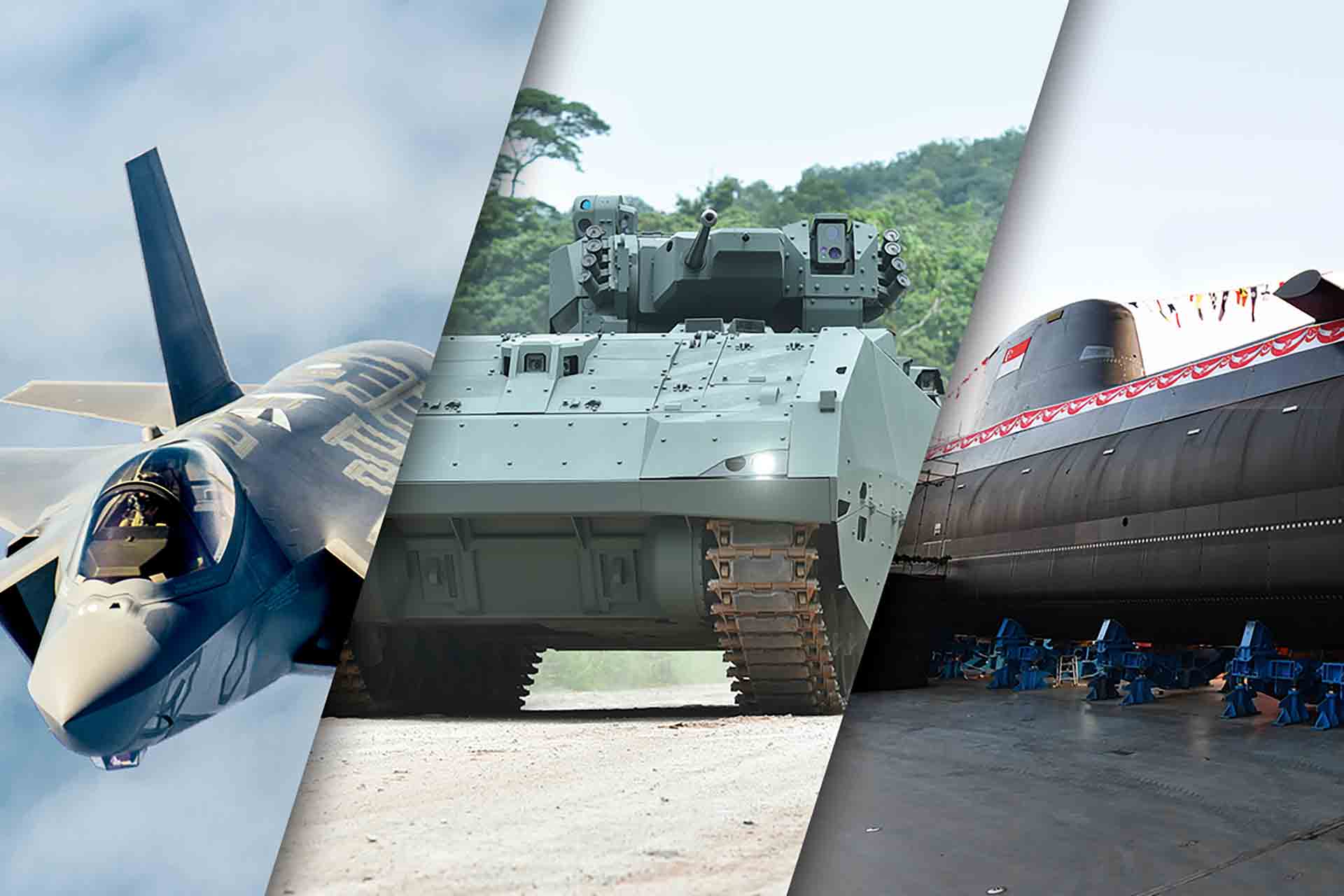
ALSO READ IN OPS & TRAINING
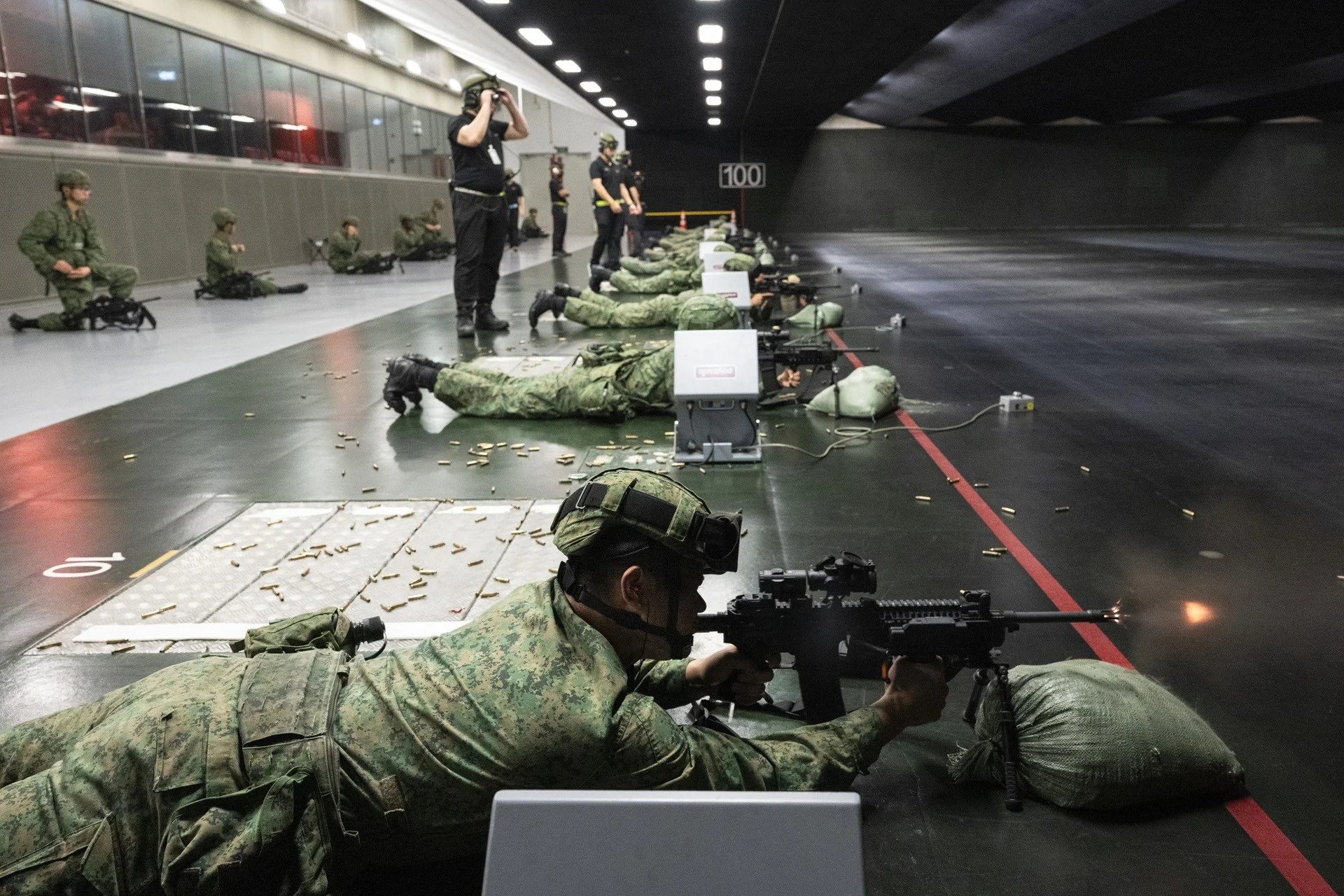
New firing range complex at Bedok Camp; Medical Classification System to be redesigned
27 Feb 2026
To train soldiers for a more complex environment, the SAF will build a new Multi-Mission Range Complex, as well as introduce opportunities for national servicemen to take on new roles, and more ways to volunteer.
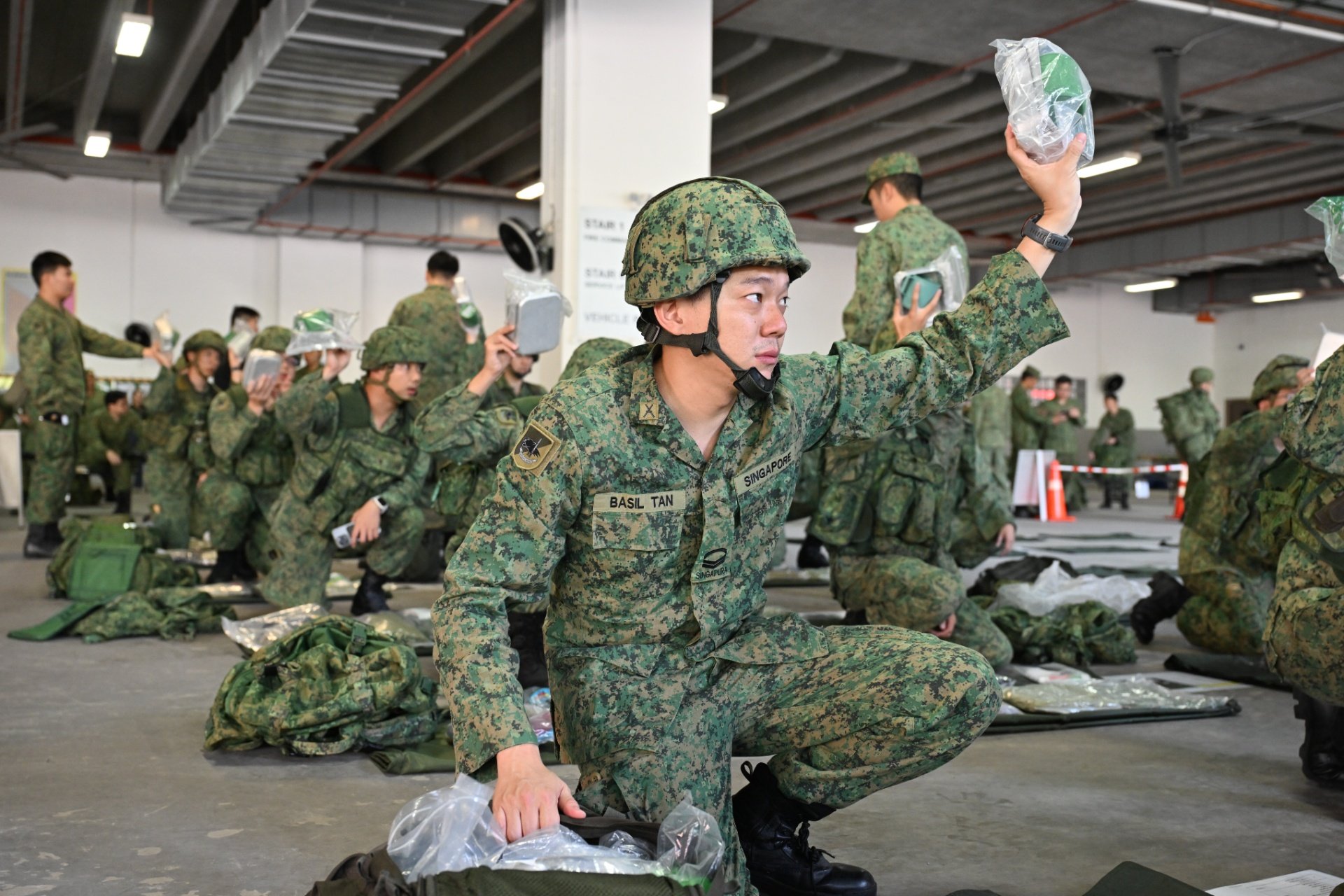
Reaffirming their commitment to defence
07 Feb 2026
Over 3,000 NSmen displayed their commitment to Singapore’s defence at a MOBEX in Selarang Camp.
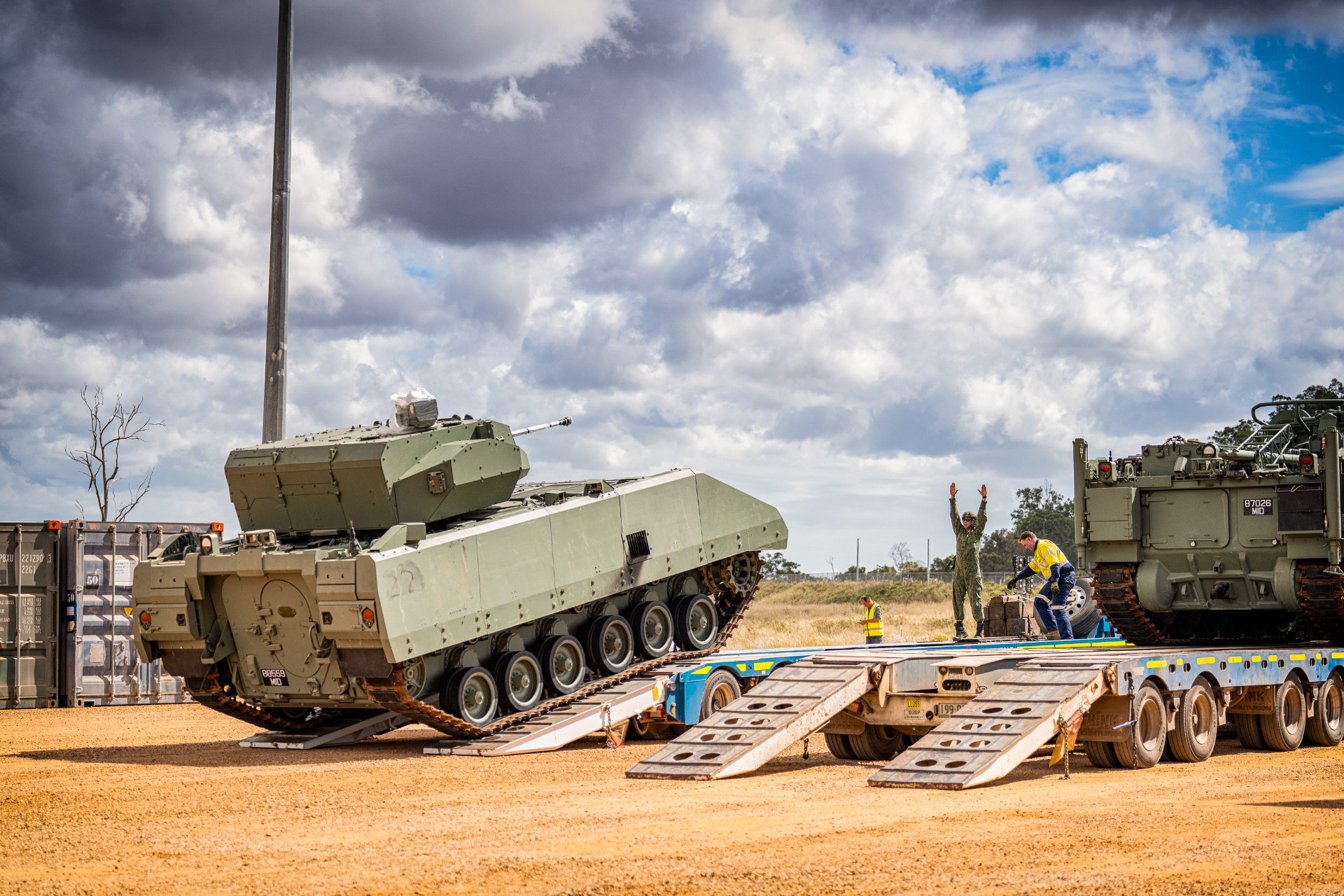
First in, last out at Ex Wallaby 2025
06 Nov 2025
Meet the teams who toil behind the scenes to enable the smooth conduct of the SAF’s biggest unilateral overseas exercise.

